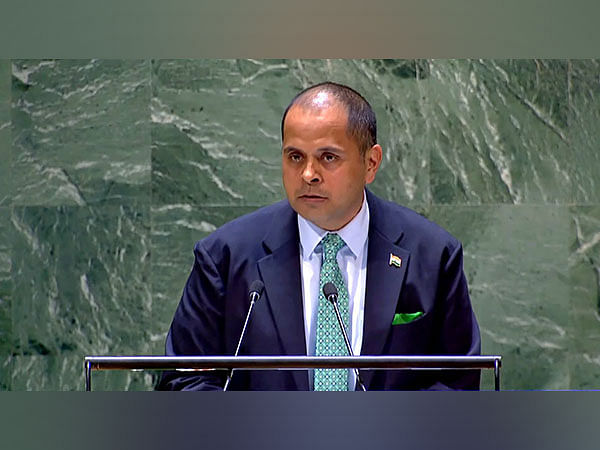New York [US], April 27 (ANI): The counsellor for India’s Permanent Mission to the United Nations, Pratik Mathur, addressed the 68th Plenary Meeting of the United Nations General Assembly on the “Use of Veto”.
A year has passed since the adoption of the ‘veto initiative’ by this August Assembly, and India’s position on veto has been consistent and clear, he noted.
“UNGA had unanimously agreed to vide decision 62/557 in 2008 that all five aspects of UNSC reform, including on the question of veto would be decided in a comprehensive manner and therefore no single cluster could be addressed in isolation. The veto resolution, though adopted by consensus, unfortunately, reflected a piecemeal approach to UNSC reform, thereby highlighting one aspect, ignoring the root cause of the problem,” Counsellor Mathur said.
Regarding the substantive aspect of the exercise of veto in the Security Council, Counsellor Mathur made several observations.
All five permanent members have used the veto over the last 75 years to achieve their respective political ends, he argued.
“In this regard, let me flag what our African Brothers have repeatedly stated in the IGN, ‘The veto as a matter of principle should be abolished. However, as a matter of common justice, it should be extended to new permanent members so long as it continues to exist’,” Counsellor Mathur said, quoting African nations.
“The privilege of using the veto has been vested in only five member states. As rightly called out by our African brothers, it goes against the concept of sovereign equality of states and only perpetuates the mindset of the Second World War, to the victor belongs the spoils,” he added.
“Either all nations are treated equally in the context of voting rights or else the new permanent members must also be given the veto. Extension of veto to new members will have no adverse impact on the effectiveness of an enlarged Council,” Counsellor Mathur said.
Claiming that the “exercise of veto is driven by political considerations, not by moral obligations”, he said, “As long as it exists, the member state or member states, who can exercise the veto, will do so, irrespective of the moral pressure, as we have seen in the recent past.”
“Therefore, we need to address all five aspects of UNSC reform, including the question of veto, in a comprehensive manner, through clearly defined timelines, in the IGN process. India has committed to supporting any initiative that genuinely furthers the objective of achieving meaningful and comprehensive reform of the key elements of the global multilateral architecture,” he stated further in his address.
He concluded his address by reiterating that the Union Territories of Jammu and Kashmir and Ladakh were, are and will always remain an integral and inalienable part of India, and no amount of misinformation, rhetoric and propaganda from any country can deny this fact. (ANI)
This report is auto-generated from ANI news service. ThePrint holds no responsibility for its content.



